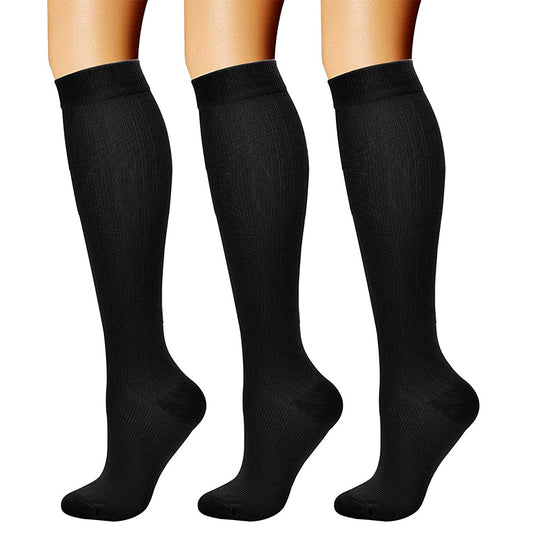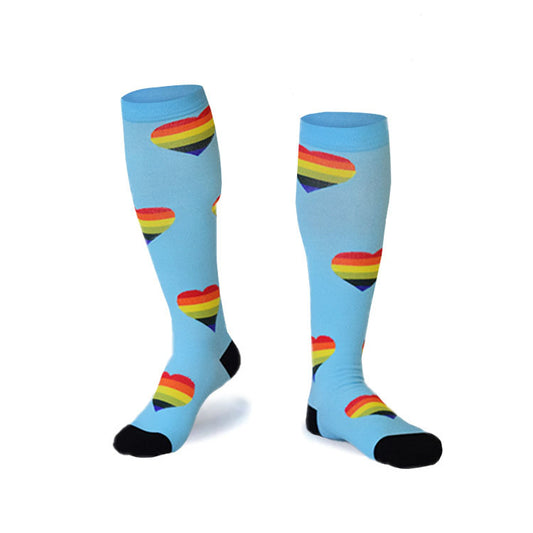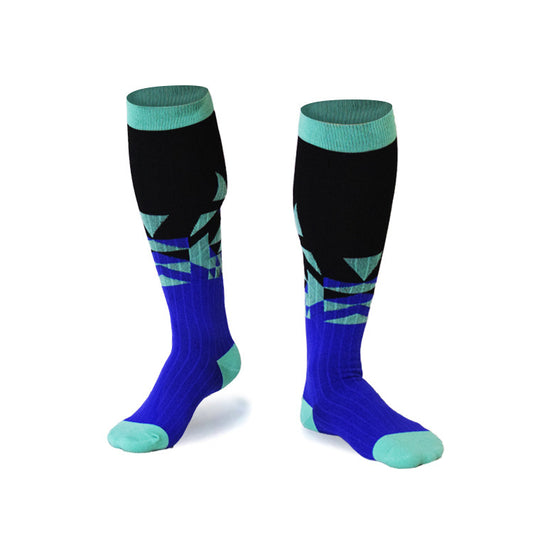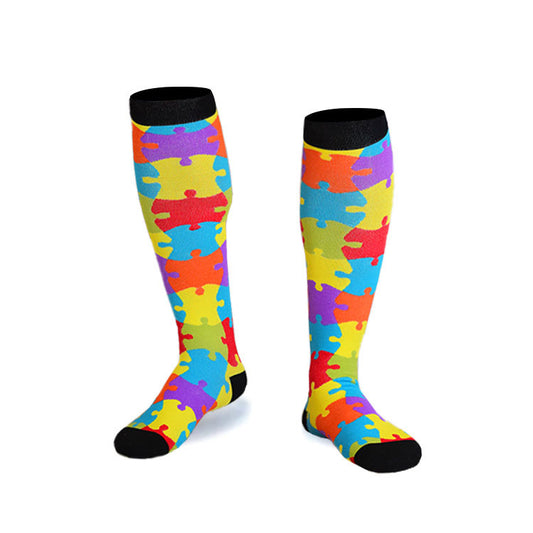-
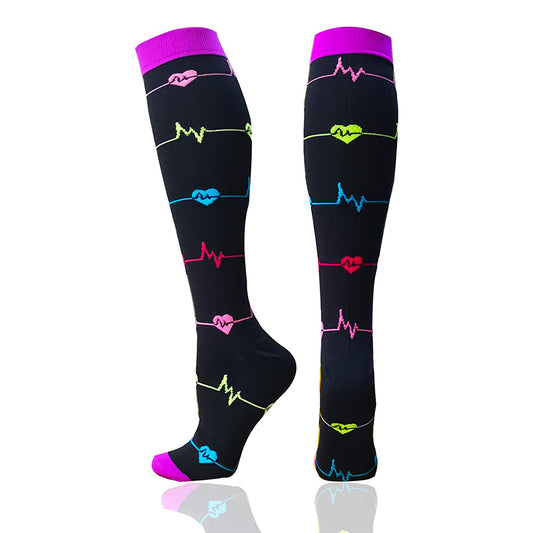
Compression Socks Women & Men - Best for Running,Medical,Athletic Sports,Flight Travel, Pregnancy
Regular price $15.99 USDRegular price$26.99 USDSale price $15.99 USDSale -
Compression Socks Women and Men, 20-30mmHg, Best for Nurses, Travel, Pregnancy
Regular price $15.99 USDRegular price$26.99 USDSale price $15.99 USDSale -
Compression Socks for Women and Men - Best Athletic,Circulation & Recovery
Regular price $15.99 USDRegular price$26.99 USDSale price $15.99 USDSale -
Compression Socks for Women & Men Circulation (3 Pairs)15-20 mmHg is Best Support for Athletic Running Cycling
Regular price $23.99 USDRegular price$30.00 USDSale price $23.99 USDSold out -
Ultralight Short Compression Socks, Women & Men
Regular price $14.99 USDRegular price$25.00 USDSale price $14.99 USDSale -
Medical Compression Socks for Women and Men Circulation 20-30 mmHg Compression Stockings for Running Nursing Travel
Regular price $17.99 USDRegular price$35.00 USDSale price $17.99 USDSale -
Compression Socks for Women & Men Circulation (1 Pairs)- Best Support for Nurses, Running, Hiking, Athletic, Pregnancy
Regular price $17.99 USDRegular price$35.00 USDSale price $17.99 USDSale -
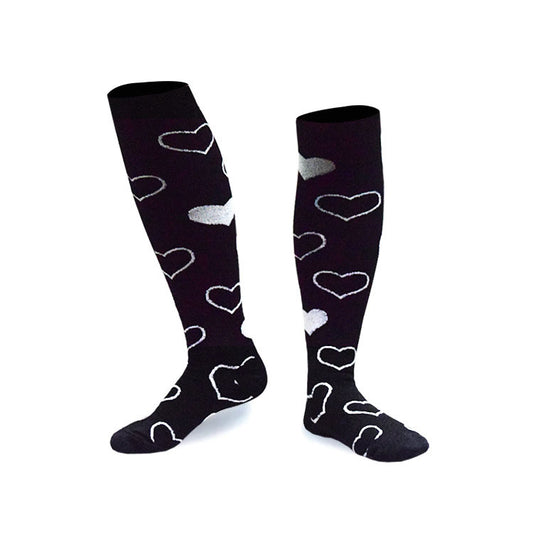
Compression Socks For Women and Men Circulation(1 Pairs)-Best support for Running,Sports,Pregnancy
Regular price $17.99 USDRegular price$35.00 USDSale price $17.99 USDSale -
Compression Socks for Women Circulation for Nurse,Pregnancy,Running,Hiking(1 Pairs)
Regular price $17.99 USDRegular price$35.00 USDSale price $17.99 USDSale -
1 Pack Copper Compression Socks for Women and Men Circulation-Best Support for Medical, Running,Nursing,Athletic
Regular price $17.99 USDRegular price$35.00 USDSale price $17.99 USDSale -
Compression Socks for Women & Men Circulation - 20-30mmHg 1 Pairs Compression Stockings for Nurse, Pregnancy
Regular price $17.99 USDRegular price$35.00 USDSale price $17.99 USDSale -
Cute Women Compression Socks for Circulation, Knee High Stockings Support for Nurse, Cycling, Hiking, Riding, Running
Regular price $17.99 USDRegular price$35.00 USDSale price $17.99 USDSale -
Men's and women's sports compression socks Compression socks Running socks
Regular price $17.99 USDRegular price -
1 Pairs Compression Socks for Women & Men Circulation 20-30 mmHg Support for Medical, Running, Cycling, Hiking, Flight Travel
Regular price $17.99 USDRegular price$35.00 USDSale price $17.99 USDSale -
Compression Socks - Knee High for Running, Athletics, Travel - 1 Pair
Regular price $17.99 USDRegular price$35.00 USDSale price $17.99 USDSale -
Compression Socks for Women & Men Circulation, Knee High Stockings Support for Nursing, Athletic, Hiking, Running
Regular price $17.99 USDRegular price$35.00 USDSale price $17.99 USDSale
Collection: medical socks
Why Choose Medical Compression Socks?
Targeted Health Support
Our 15-21mmHg graduated compression socks meet medical standards for:
- Reducing leg swelling/edema
- Preventing deep vein thrombosis (DVT)
- Managing diabetic neuropathy symptoms
- Accelerating post-surgery recovery
Premium Comfort Features
- Breathable copper-infused fabric fights odor
- 360° arch support reduces plantar fasciitis pain
- Seamless toe design prevents blisters
- Moisture-wicking technology keeps feet dry
Top-Rated Medical Socks Collection
1. Women's Compression Socks for Nurses & Athletes
- Ideal for 12-hour shifts
- Maternity-friendly design
- Moderate compression (15-20mmHg)
2. Unisex Medical-Grade Compression Stockings
- Full calf coverage
- Non-binding top band
- FDA-registered Class I medical device
3. Copper-Infused Circulation Socks
- Natural antimicrobial properties
- Enhanced joint support
- Ideal for arthritis sufferers
4. Plantar Fasciitis Relief Socks
- Targeted heel cushioning
- Anatomical arch compression
- Night recovery design
How to Choose Medical Socks
Compression Levels Explained
| Type | Pressure | Best For |
|---|---|---|
| Mild | 8-15mmHg | Daily prevention |
| Moderate | 15-20mmHg | Medical needs |
| Firm | 20-30mmHg | Prescription use |
Size Guide Tips
- Measure ankle/calf circumference
- Check height requirements
- Consult our sizing chart
5 Key Usage Scenarios
- Post-Surgical Recovery
- Diabetic Foot Care
- Pregnancy Swelling Relief
- Athletic Performance Enhancement
- Long-Haul Travel Protection
Care Instructions
- Hand wash in cold water
- Lay flat to dry
- Replace every 3-6 months
FAQ
Q: How long should I wear medical compression socks?
A: Start with 2-3 hours daily, gradually increasing to 8-10 hours. Consult your physician for specific medical conditions.
Q: Can diabetics wear compression socks?
A: Yes! Our diabetic-friendly designs feature:
- Non-restrictive tops
- Extra soft seams
- Moisture control
Q: What's the difference between medical and regular socks?
A: Medical-grade socks provide:
- Measured mmHg compression
- FDA-compliant materials
- Therapeutic pressure gradient
Q: Are these suitable during pregnancy?
A: Absolutely. Our maternity socks help:
- Reduce leg swelling
- Prevent varicose veins
- Improve circulation
Q: How tight should they feel?
A: Should feel snug but not painful. Properly fitted socks:
- Allow finger insertion at ankle
- Don't leave indentations
- Maintain even pressure




